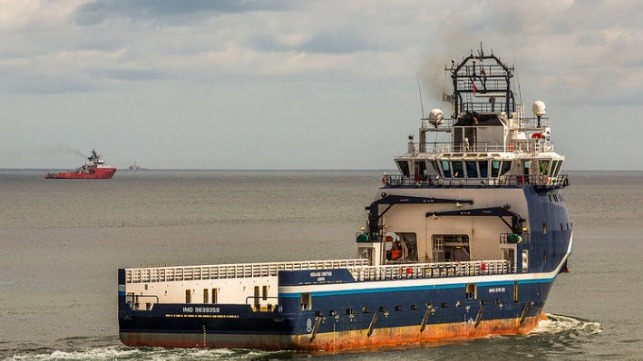WSC Calls for Linking FuelEU Requirements to Fuel Availability

The World Shipping Council became the latest organization among the shipping industry to outline its concerns over the FuelEU Maritime regulations, which the European Commission is currently proposing as a tool to promote the use of cleaner fuels. The trade group representing the liner shipping industry says it welcomes the proposal but like many in shipping also raises concerns that the regulations go beyond the EU’s geography toward global regulation and that the proposal should be contingent on the availability of the required new fuels.
In a position paper released by the World Shipping Council, the organization says that it believes the regulations are an opportunity to drive progress towards EU targets and to contribute to the decarbonization of international shipping. However, they write, the proposal’s actual impact will hinge on optimizing the geographical scope of FuelEU and making sure fuel availability keeps pace with fuel use requirements.
“When working towards a shared objective to minimize total greenhouse gas emissions and reduce the climate impact of shipping, a full lifecycle perspective is the only logical approach. That is also why FuelEU alignment with RED and AFIR is so important in ensuring the provision of genuinely clean fuels,” says John Butler, President & CEO of World Shipping Council. “Even if all the vessels in the world were able to run on alternative fuels – and the sector is working hard to make that happen – it will make no difference for our climate if that fuel is not available from clean sources.”
Among its comments to the EU on the proposal, the WSC writes that it is “crucial that the fuel use obligations outlined in the proposal are matched by measures to ensure the supply of suitable fuels and infrastructure through RED and AFIR. The legal requirement to use certain fuels should be contingent on their availability.”
The trade group also says that the same geographic scope should apply for the fuel use obligation as the measures to ensure the supply of clean fuels apply within the EU. They raised concerns that the “extra-territorial scope for FuelEU” presents real risks of overlapping regional and global policy.
“With that comes a substantial risk of the EU failing to influence international shipping as intended,” the WSC writes. “A consistent intra-EU scope for FuelEU would avoid the pitfalls of overlapping policies and generate the desired climate impact for the Union whilst supporting international progress through the IMO with the EU in a leadership position.”
The WSC, however. also strongly supports the EC’s proposed well-to-wake lifecycle approach for greenhouse gas intensity, as a comprehensive, globally accepted scientific approach. The WSC also sees the value of FuelEU’s proposed pooling of compliance amongst ships, calling it “an innovative and practical way to encourage companies to invest in ever more efficient vessels due to the fleet wide effect.”
Other points that the WSC highlights are the FuelEU Maritime proposal’s definition of the responsible entity recognize that ship owners and ship operators share responsibility for the implementation of shipping decarbonization measures. They write that truly effective actions require synergies between vessel technology, design, and operation, and the proposed company definition gives all parties an incentive to work for GHG intensity reduction. It is also consistent with the international nature of fleet operation, ownership, and control, supporting EU priorities for IMO agreements and measures to reduce GHGs in shipping.
“The EU has a unique opportunity to strengthen, motivate and complement global policy for reducing greenhouse gas emissions in international shipping,” says Butler. “We are committed to working with EU Institutions to achieve the Green Deal’s goals through good policy that will enable us to move as fast as possible to zero-emission shipping.”
Organizations from across the maritime and aviation communities are submitted comments as the EU works to conclude its comment period on the fuel proposals and move the proposal forward to debate. Last week, the European Community Shipowners’ Associations submitted its comments continuing its criticism of the proposals. They raised concerns over the loopholes in areas such as enforcement as well as saying that the regulations created unnecessary burdens on the shipping community.
Other organizations have also been vocal in their criticism of the EU’s proposals. The EU is preparing to move forward on the FuelEU debate as part of the broader Fit for 55 efforts aimed at decarbonization across the EU.
